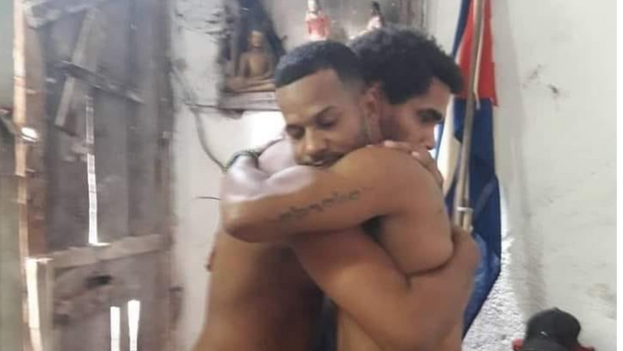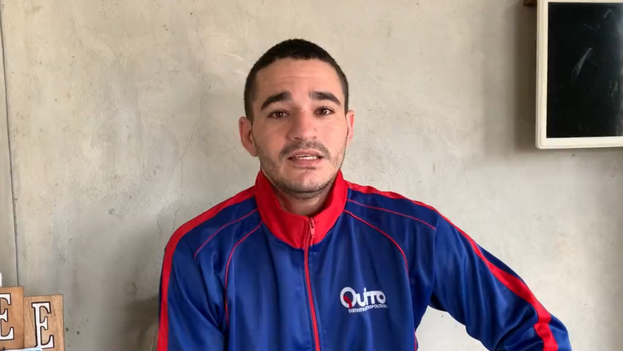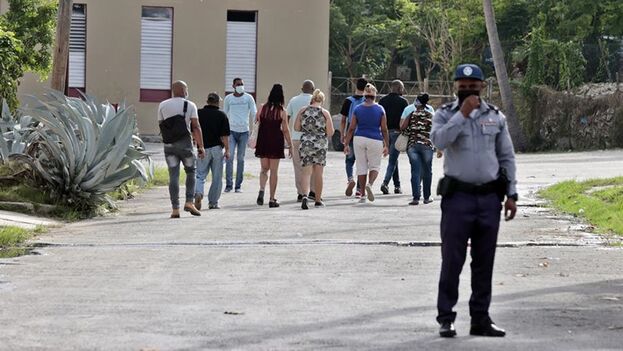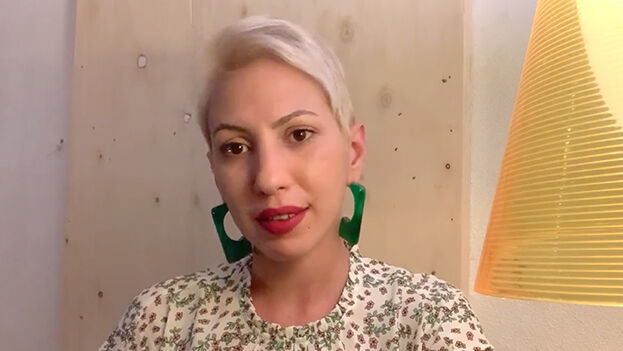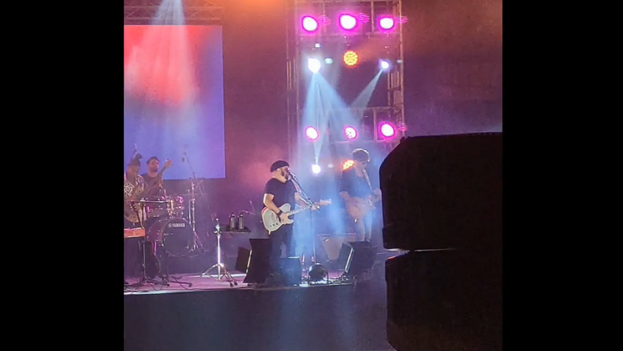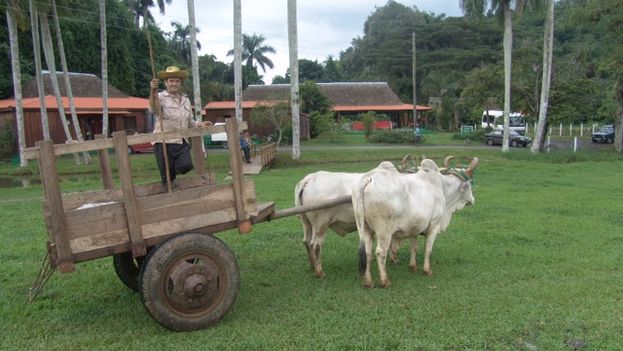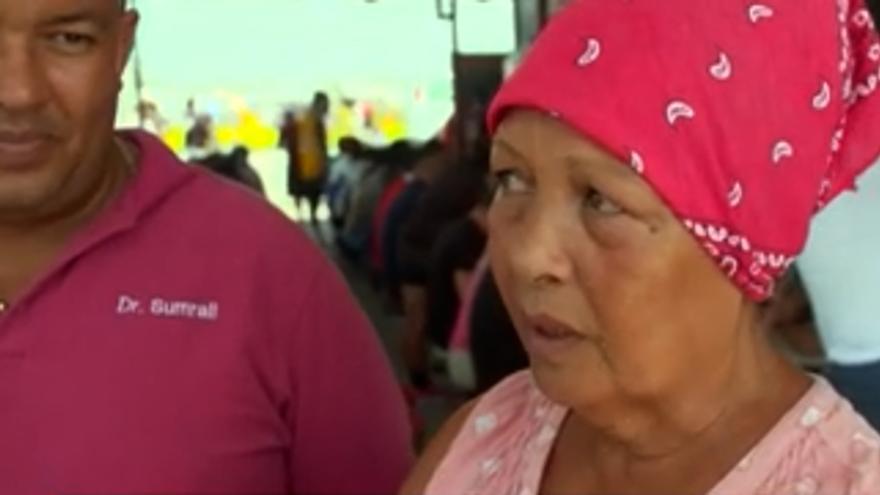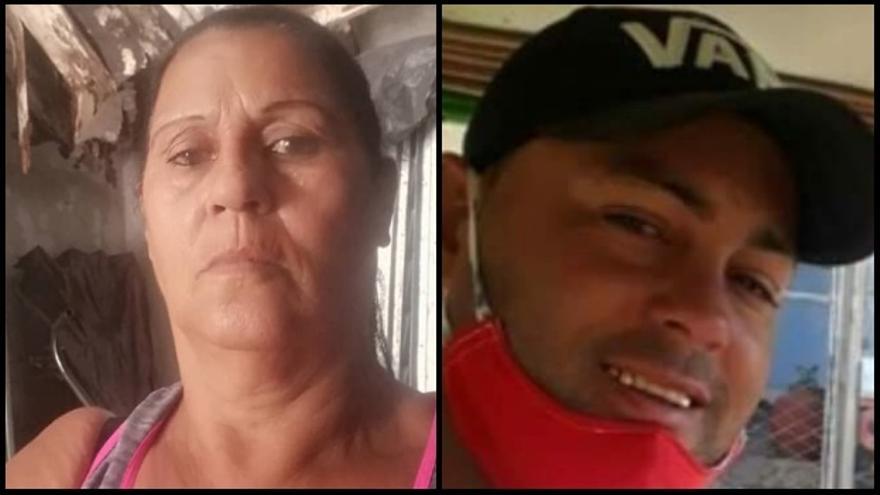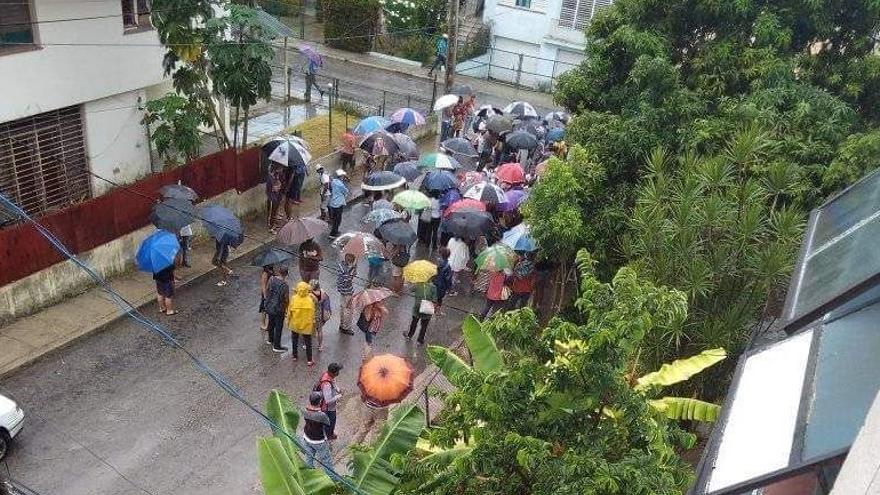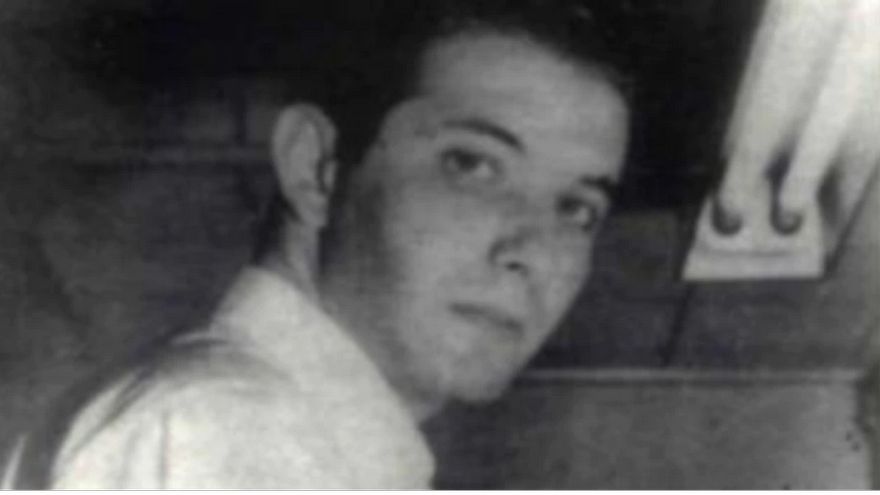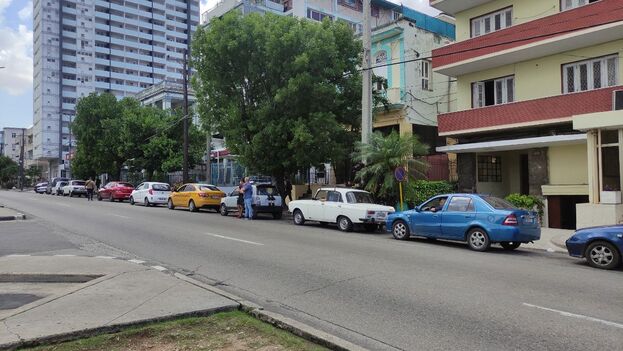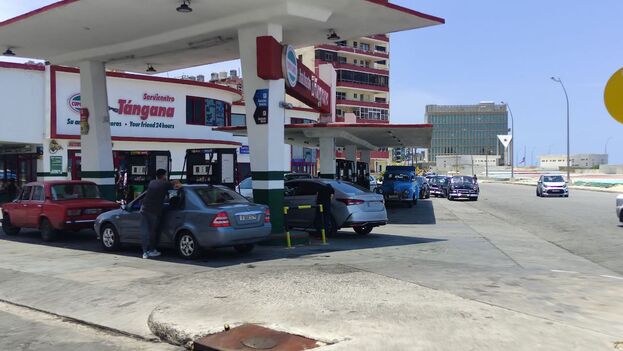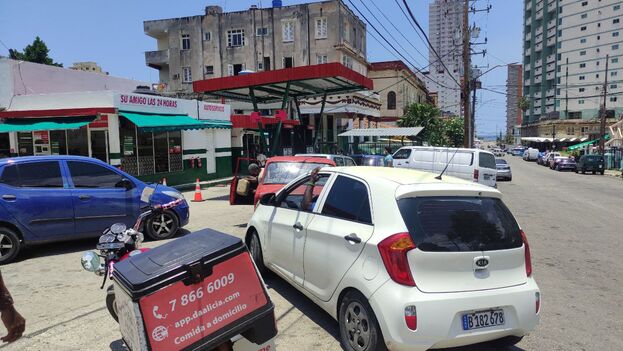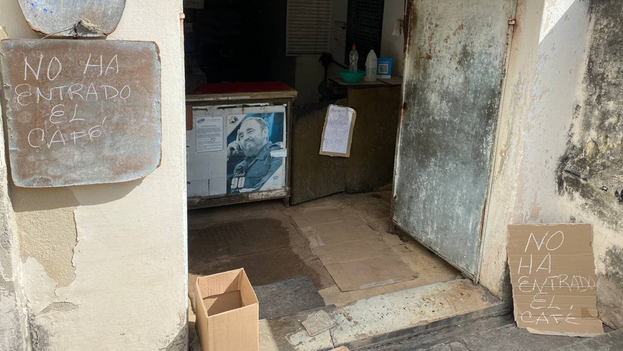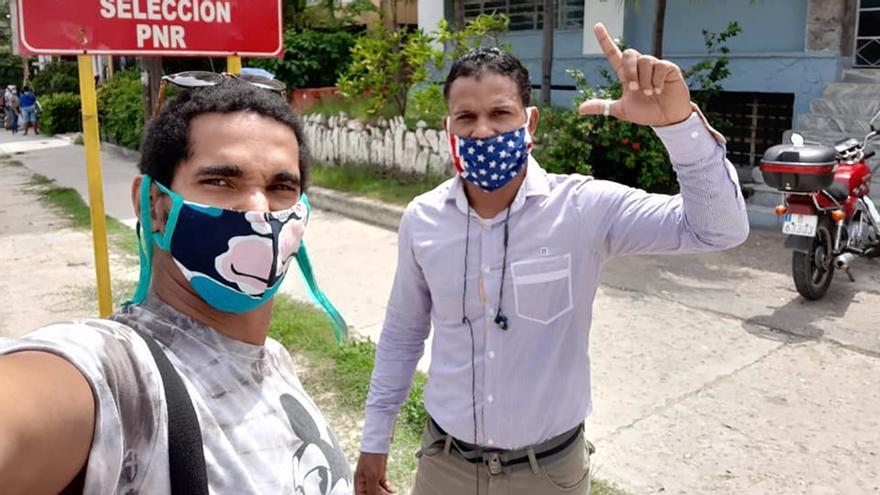Well, they’re going badly. Very badly. They don’t produce the expected effects, no matter how much makeup you put on them, and now, in addition, as a council of economists in Davos warns in a quarterly report, a global food crisis is coming that won’t pass by Cuba, far from it. As happens in these cases, the blame for everything lies with the American embargo, and the rest is a mere formality.
It was another Roundtable program wasted for Cubans, in which Randy Alonso limited himself to agreeing with everything the communist minister said. Yes, the regime is concerned with looking for solutions and energizing agricultural production; yes, the processes in agriculture take time and some are long; yes, there are 63 measures and 658 actions with measurable goals and indicators, which are accountable to their promoters, and endless explanatory arguments that don’t convince anyone because once again they entertain themselves with indicators of process and not with the results, when what really matters to people is being able to eat every day. Very communist.
I ask, what Cuban is interested in the ministry’s decisions being divided into seven groups related to the management and finances of the agricultural system, the productive program, the cooperative system, the cadres of the sector, science, innovation and communication or the agricultural communities? What Cuban is interested in knowing that 16 agricultural policies, seven decree laws, 11 decrees and 19 resolutions have already been approved, to favor and unblock issues related to production? What Cuban is interested in knowing that the National Assembly recently approved the Law on Food Sovereignty and Food and Nutrition Security? As if hunger and food shortages were resolved by publishing laws and more laws. continue reading
The minister missed a golden opportunity to assume responsibility and speak clearly about why there is a lack of food in Cuba. Surely he knows why and also that getting lost in talking about a process indicator does nothing more than bore an audience that doesn’t give a damn that there is a reorganization of the ministry or that the role of the municipalities is strengthened, passing employees from one place to the other, as well as Raúl Castro’s old idea of producing in pots, parks and gardens.
At one point in his speech, the minister alluded to the restructuring of companies, which have reduced their workforce by 39%, especially the OSDEs*, which, out of an average of 180 contracted workers, now have fewer than 70. To avoid panic, he said that it’s not a matter of leaving people unemployed, but of “relocating them” and cited the example of “comrades who were heads of UEB** who today are heads of an irrigation-machine labor collective.” In other words, UEBs don’t help much, if budget tables can be dispensed with.
The minister said that “we need to look for more people dedicated to production.” it seems that he doesn’t have enough, that almost 20% of the employed population in Cuba is in the agricultural sector, and he wants more people producing with the result of lower productivity. On the other hand, he talked about “inflated structures” so we don’t really know what to expect.
He also talked about increasing foreign investment, recognizing that not enough progress has been made in agriculture. In fact, it has been on the margins of the projects, due to the legal structure of property rights that has to change.
He referred to the agricultural development bank, which in his opinion “has been very well received by producers,” but in reality has a marginal existence, since only 1.8 billion pesos were granted last year “mainly to producers linked to pig production, cattle ranching, and the cultivation of rice, bananas, cassava and guava” without significant increases in production, as revealed by ONEI*** data.
Other beneficiary products such as tomatoes, soybeans, pigs and livestock, in addition to rice, beans, corn, potatoes, bananas, cassava and sweet potatoes, also did not experience any improvements, with the exception of tomatoes. The 18,282 credits approved do not reach 10% of tenants and independent producers, and the 5 billion pesos are a drop in the bucket for the real needs of the sector. The farmers have turned their backs on the “dynamizing measures” of agricultural production. They have done the right thing.
Then, after talking about the need for more labor in agriculture, the minister said that “there is a lot of land to be exploited,” and in this case, once again, the direct responsibility is his. In reality, if “idle or poorly exploited land remains in Cuba, a problem to be solved in order to raise production,” the regime has to recognize that collective ownership of land is a strategic error and that it should be transformed into private property, as the Chinese and the Vietnamese did.
If the minister wants “our people to feel that making the land produce is part of their life project,” what has to be done is to give the land to those who work it, but with all the consequences, so that its use can be increased, reduced, sold, rented, or freely decided without ideological or partisan slogans, only with the criteria of efficiency and profitability.
The minister doesn’t seem to bet on this. For him, it’s more important to take care of labor groups as part of the land delivery process. He cited the more than 1,500 labor groups, with almost 15,000 workers, who could benefit from the approved measures, but acknowledged “that they’re not received everywhere in the same way (…) We find problems with the bosses, because they don’t change their methods. That doesn’t create a sense of belonging in the workers, and we need efficient management there as well.”
With regard to the delivery of land, the minister was critical and pointed out the delays in meeting the deadlines and resistance of the administrations to deliver idle land. The picture is bleak: premature requests that have to be resolved through political management, many more in process and the people going hungry.
The minister spoke of “working more intentionally with producers, approaching them and offering land to them.” But he stressed in this regard that “we don’t want to concentrate the ownership of the land in usufruct [a form of leasing], but in the management of that land.” And it was justified by the delivery of land for livestock, because of more than 7,000 hectares of land delivered, due to the lack of imported feed, no increases in production have been achieved.
In livestock production, milk and meat, the minister spoke of the recovery of more than 1,000 typical dairy farms, as well as the efficiency of the more than 150,000 producers, the 27,000 ranchers with 10 or more cows that “are key in our plans and we are visiting them” to give them land. Apparently it doesn’t work; they want to give them up to 555 acres of land but the average is around 165. No one wants to contribute their work and effort to something that will never be theirs. Let’s see when they learn. The minister acknowledged that there is a decrease in the livestock mass and said that “we have just over 3.5 million head of cattle, but only 40% of our cows give birth. Although we are complying with the milk plan, this is an area where more can also be done.”
In organic farming, the minister pointed out that the cultivated areas have grown but are insufficient. For example, bananas need 70,000 more acres, while malanga needs another 27,000 and cassava needs more than 125,000. The disturbing question is who decides which areas are organically cultivated, how and why?
He also pointed out that in the cultivation of food and vegetables, “more could be done” and cited as an example the autonomy of municipalities to agree on prices as a stimulus to production, while helping not to raise costs excessively, in his plans is to recover urban agriculture.
At another point he said that in Cuba there are 4,494 cooperatives and more than 400,000 producers and noted that “in the Political Bureau, 17 solutions for cooperatives were approved, and work is currently being done on a new legal norm that gives them more independence.” The organizational form is in crisis.
Regarding the training of cadres, with which he was dissatisfied, he pointed out that work is being done on skills and on the projection of the cadre and insisted that “we have to continue to improve work with young people.”
He reserved another part to talk about the role of scientists and science, which in his opinion has allowed progress in innovation-based management having achieved “247 innovations, 33 topics and 117 indications from the president.” In this regard, he said that “dissatisfaction persists. We must look for mechanisms that allow what has been achieved in one producer to spread more quickly to others.”
In summary, the minister defended the implementation of the 63 agricultural measures by justifying their positive impact, but didn’t offer a single indicator of improvement results. The recent publication of ONEI still gave figures very close to the negative balance of the agricultural sector in 2021. Therefore, following the lines of Minister Gil, the head of agriculture joined the official speech that “progress is being made, although we can’t feel pleased. We are totally dissatisfied.”
The question is, what gradual progress should be achieved to be satisfied with something that obviously doesn’t work? Because at this rate, either a new model for the Cuban agricultural sector is identified, or the food crisis anticipated by analysts and experts is closer than ever.
And it may be true that the solution is not to import consumables, as the minister said, but to find a way to produce them here, but perhaps others should look for and implement solutions. Cubans can’t be fooled any longer. Don’t take them for fools. Their daily meal is not secure. Things are getting worse and worse.
Translator’s notes:
*Organizaciones Superiores de Dirección Empresarial [Higher Organizations of Business Management]
**Unidad Empresarial de Base [Basic Business Unit]
***Oficina National de Estadisticas e Información [National Office of Statistics and Information]
Translated by Regina Anavy
____________
COLLABORATE WITH OUR WORK: The 14ymedio team is committed to practicing serious journalism that reflects Cuba’s reality in all its depth. Thank you for joining us on this long journey. We invite you to continue supporting us by becoming a member of 14ymedio now. Together we can continue transforming journalism in Cuba.
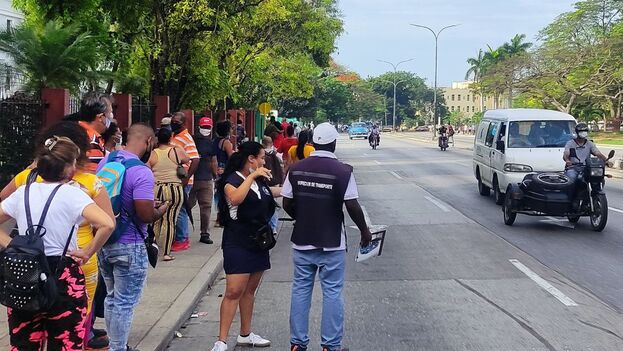
![]() 14ymedio, Juan Diego Rodríguez, Havana, 30 May 2022 — “Transportation is bad, but not worse than other days.” Havana residents have not been taken by surprise by the declarations of the provincial authorities acknowledging the critical situation the sector finds itself in, because they have been putting up with it daily for at least three months.
14ymedio, Juan Diego Rodríguez, Havana, 30 May 2022 — “Transportation is bad, but not worse than other days.” Havana residents have not been taken by surprise by the declarations of the provincial authorities acknowledging the critical situation the sector finds itself in, because they have been putting up with it daily for at least three months.
